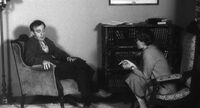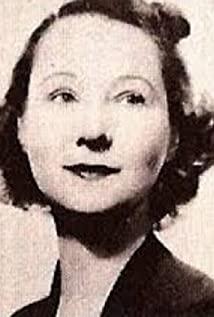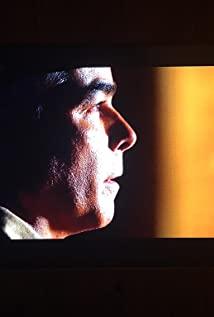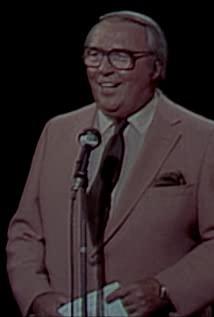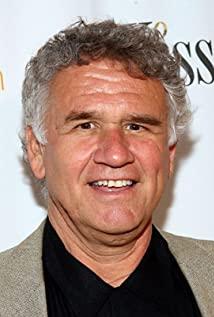essay on the spot / Jiang Xiaorong
2013-11-05
In the post-Annie Hall and "Manhattan" era, Woody Allen once again created a film that will be recorded in the history of the film "Xili pass". In the period when the script of "The Legend of Xi Li" was fully formed and only waiting for the filming to begin, Allen felt that it was a pity to waste time in vain, so he waited for the time to start filming, and created another light comedy in two weeks. A Midsummer Night's Beautiful Dream. In the end, the two films were almost shot in parallel, but because the later period of "The Legend of Xi Li" was too complicated, it entered the audience's field of vision after "Beautiful Dreams". Since then, Woody Allen started a golden period of cooperation with Mia Farrow. As the new muse of Woody Allen, Mia Farrow brought him new inspirations-the role of the psychologist Eudora Fletcher in The Biography of The West was tailored by Allen for Farrow, and she also Accompanied Alan through the glorious years of "The Purple Rose of Cairo", "Sisters of Hannah", "The Voice of the Years" and so on. But this relationship that was once a good story by the media ended in embarrassment. The love affair between Alan and Farrow’s adopted daughter Song Yi became a huge gossip conversation for a while, and Mia Farrow’s own reaction and words were also very intense. But until now, when talking about Mia Farrow, Woody Allen still praises her talent. Three of the six self-recommended films are co-productions with Mia Farrow. Among them is "The Legend of Xili", which has double-acclaimed at the box office.
"The Legend of the West" tells the legend of a man named Leonard Zelig-he can change his identity and even his appearance according to the different circumstances. When Zelig approaches a fat man, he will also become a fat man; when he is with a Chinese, he will also become a Chinese and speak fluent Chinese; when he is with psychologists, Zelig Will become one of them, talk a lot about his views on Freud, and be sure that he teaches courses on psychology and masturbation at a university in New York. Therefore, this legendary figure was given the nickname "Chameleon", and he became a spectacle in the hearts of consumer groups. In a hypnotic state, Zelig and his attending psychologist Eudora Fletcher admitted that his special function began with a humiliating experience. Once, a friend asked him what he thought of the book Moby-Dick. Zelig had not read this book, but he was afraid that it would lose face if he said it. Since then, he has had this ability to act on the spot, and he has also been wandering between multiple personalities, losing his own life. But not everyone can have the ability to act on the spot. It requires completely abandoning self-ability and superb acting skills.
In "Xili Biography", performance can be roughly divided into two levels. One is shallow, that is, Woody Allen, Mia Farrow, and many actors' portrayal of fictional characters in the movie; the other is sub-layered, that is, Zelig's interpretation of his multiple identities. Therefore, if we want to talk a little about the acting skills in "The Legend of the West", we also need to start from these two levels.
Shallow level: acting and recording
The success of "The Legend of the West" is not only attributed to Woody Allen's endless imagination and dedication in post-production, but also to the superb and restrained acting skills of the actors. In the case of Woody Allen, he once again used his body language to shape a "geek" who was on the edge of the psychological world but was pushed to the center in the consumer world-people followed him, amusing him, and admiring him, But no one really cared about him, except for Eudora, a psychologist. Relying on his comedy skills, Woody Allen not only vividly interprets Zelig's multiple lives, but also vividly portrays Zelig's fear of the crowd, the incomprehension of the surroundings, and the loneliness of self-lost. In the early part of the film, Zelig was taken home by her sister who was half blood related to him, and has since become a cash cow for her sister. People spend money to watch Zelig change forms, just like they spend money to see animals in a zoo. After "transforming" into an Indian, the real Indian's facial expression seemed to be at a loss when facing the camera, while Zelig's expression was deeply puzzled. Woody Allen's superb acting skills not only amplify the comedy effect of this segment to the extreme, but also spread the tragic life of the comedy character Zelig to the entire screen. The composition here has also cleverly formed an ironic effect: Although Zelig occupies the center of the image, although he is the focus of attention at this time, his heart is actually in an extremely marginal position, and his loneliness and fear are not shared. .
In addition to the main characters, the performances of the secondary characters are equally brilliant. When "The Legend of the West" was just taking shape, Woody Allen didn't want to deliberately use documentary methods to shoot the film, he just hoped to be able to use "realism" to express the story. The so-called realism is not only to remove the pretentious romantic elements—as ironic in the two dramas in The Story of the West—realism requires realistic expressions, which is reflected in the performance and requires actors. To imitate the state of people in reality in front of the camera, rather than to show their qualities as a professional actor facing the camera. To some extent, the actors accomplished this task satisfactorily. For example, the Indian mentioned earlier. His slightly stiff smile and tiny eye movements accurately capture the cramps of ordinary people facing the camera (but I don't know if he is indeed a crowd who has not received performance training). Many actors who performed interviews did not recite the script very fluently, but added a few verbal errors and voice repetitions from time to time, just as we all do in real life. What impressed me the most was that after Zelig was ruined due to a “sex scandal”, several groups of interviewees’ videos were called out to accuse Zelig of his crimes. One of them was an old lady and his wife standing stiffly in front of the camera. The old lady accused Zelig of negligence in a slow and unnatural tone. It was obvious that the lines had been memorized in advance. For an actor, it may not be easy to perform fluently and naturally, but it is even more difficult to perform so unnaturally, because such a plot requires them to abandon all the performance experience they have accepted or accumulated as an actor. To restore or interpret an ordinary person who never knows how to express himself in front of the camera. From this perspective, these seemingly inattentive and unskilled acting skills deserve our respect and praise.
But the superficial performance of "Xili Biography" is not only a technical problem, it also guides us to think about problems outside the film, that is, the relationship between documentary and acting. Whenever we face a documentary, we tend to regard it as a faithful restoration of the real scene and the real situation. After all, if the documentary does not play the role of recording, then how can this title start? But not to mention that the position and perspective of the documentary creator may have a certain impact on the transmission of film information. Based on the existence of the film type of pseudo-documentary, we should probably think about whether the "recorded" content of the documentary can rely on proficiency. , Natural acting skills are recreated or even created? Zelig is a fictitious character, but film creators can also interpret him as a real person through natural and proficient acting skills, and integrate him into real history through artistic techniques; Zelig can even interact with Fitzgerald De, Cole Porter, and Hitler, these real historical figures are involved in a relationship, so we can't tell if we are not very talented or not, so we have never heard of such a person. We can also perceive how much through daily experience. When we are aware of the presence of the camera, our state is completely different from our private state. In the film, Eudora Fletcher himself also set up a camera in a secret place to record Zelig's behavior. After all, as she said, people not only want to read this legend, but also want to see the process of transformation with their own eyes. But this hidden camera was quickly discovered by Zelig. After realizing that the audience was present, Zelig greeted the camera, or the gaze of the audience represented by the camera enthusiastically, and also tried eye contact-of course these tricks appeared in Woody Allen's films many times, such as "Annie Hall", another example is "Anything" (2009). Although Zelig did not show obvious changes in behavior after discovering the camera, we can't help thinking about how many "real scenes" recorded with the lens, or to what extent, are completely real? This may not be the proposition that "The West Lies" and Woody Allen are concerned about, but it is still worth thinking about.
Sub-layer performance: "a symbol for everything"
Perhaps what the audience is more interested in in "The Legend of West Lie" is Zelig's superb acting skills in different situations. In the hypnotic state, when this chameleon has lost all defenses and disguise, we learn that his superpower comes from his own strong desire to blend into the environment, to be unaware, and to get love. In order to fully integrate into the surrounding environment, Zelig must have extremely high acting skills. He must give up all the qualities that belong to the "self". While making himself transparent, he must also turn himself into a mirror, becoming the physiology and physiology of the people around him. Psychological mirroring. This ability enables Zelig to be worthy of the title of "actor" or even "artist", or to use the narration in "The Biography of the West", he is a "performing freak." In the changing of identity again and again, Zelig lost himself, he Anything can be, but nothing. Zelig's acting skills in multiple lives are not only necessary for comic effects, but also necessary for tragic effects-only a person without self can be molded into various shapes.
More importantly, Zelig's life is like an absurd fable full of pungent irony. Zelig's highly acting mirror projects not only the appearance of the characters in the movie, but also the appearance of our lives off the screen. Busy and busy, many people unknowingly give up the ability to think independently and the desire to maintain their personality, turning their lives into performance after performance. The success of life depends entirely on whether the acting skills are superb. Woody Allen once expressed his concern about this phenomenon. He believed that it was this kind of psychology that contributed to the Nazi's prestige. In the "Biography of the West", we also saw Zelig joined in order to protect himself. The camp of the Nazis. In the movie, the superb acting skills deserve our praise, but if this ancient skill permeates life, is it a blessing or a curse? Perhaps this is the problem thrown to us by the submerged performance of "The Legend of Xi Li".
View more about Zelig reviews






